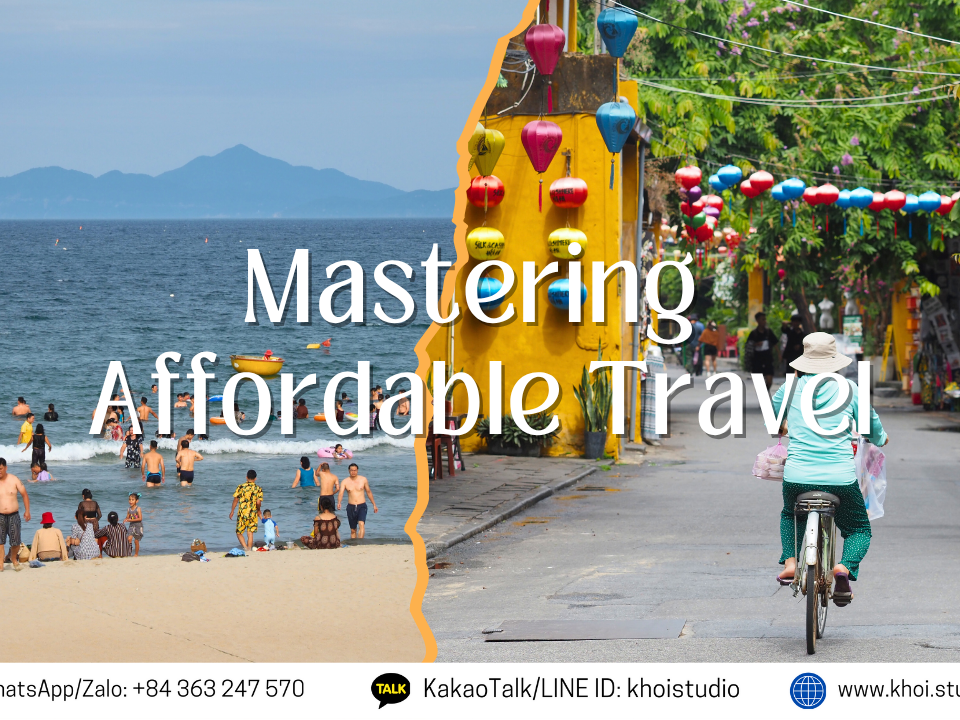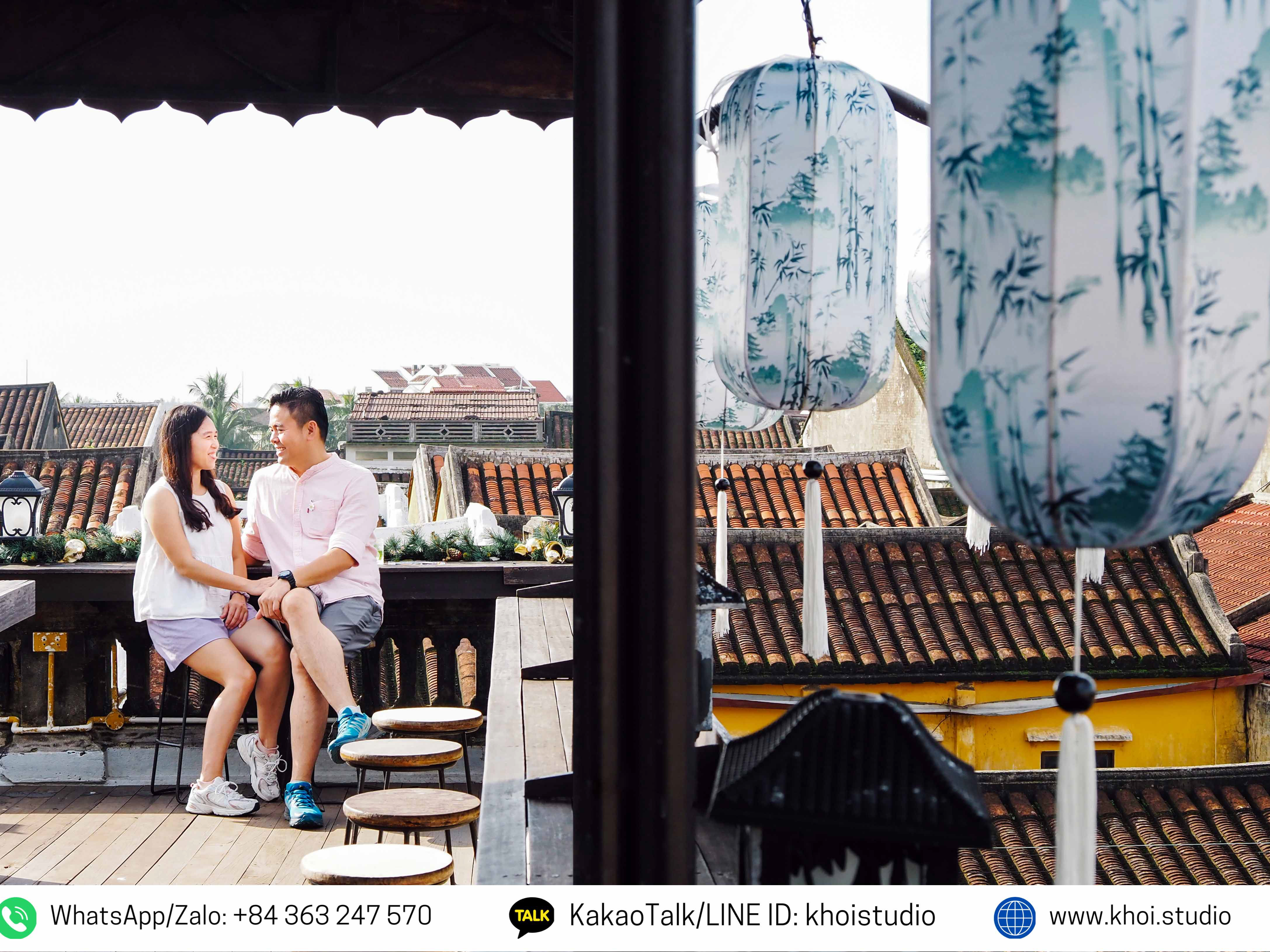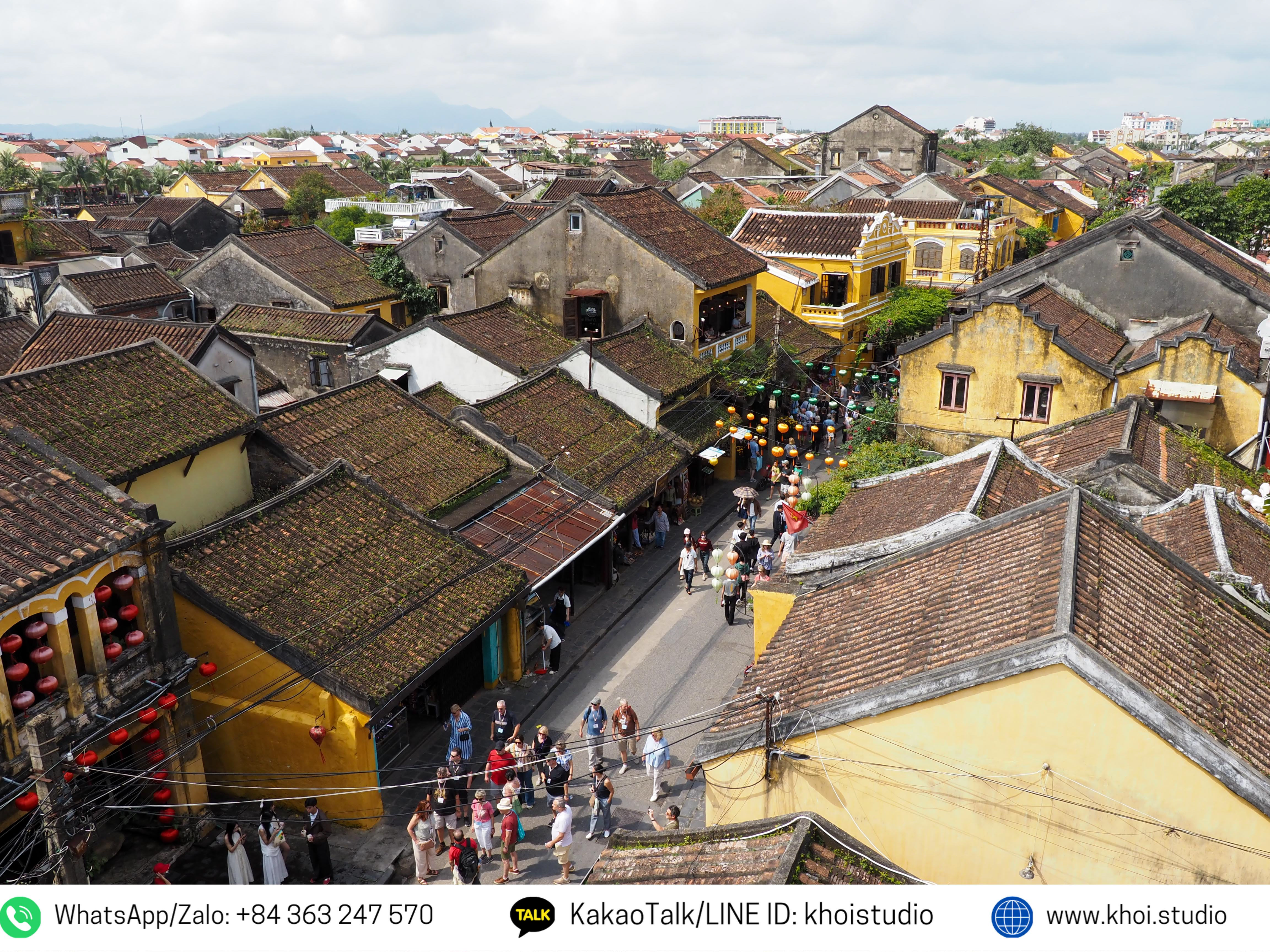Crowds of tourists crowd across An Hoi Bridge in Hoi An at night. Image: Khoi Studio.
Here are some tips to help you avoid scams and have a more enjoyable, safe visit:
1. Watch Out for Overpriced Tours and Activities
The Scam: Many tourists are approached by locals offering tours, cooking classes, or boat rides at prices that seem too good to be true.
How to Avoid It:
Book tours through reputable agencies, hotel concierges, or well-reviewed platforms like Viator or Klook...
Always agree on the price before booking any service.
Check for reviews online or ask fellow travelers for recommendations.
2. Beware of Fake Goods
The Scam: Hoi An has many tailor shops selling clothes, bags, and shoes, but some shops may offer knock-offs or low-quality products at high prices.
How to Avoid It:
Do some research beforehand about reputable tailors or shops.
Read reviews and recommendations on travel forums or apps like TripAdvisor.
Be cautious of prices that seem too low for custom-tailored clothes.
3. Tailoring Scams
Hoi An is famous for its tailors, but the quality can vary. To avoid being scammed:
Do Your Research: Don't go with the first tailor who approaches you on the street. Check online reviews and ask for recommendations. Well-established shops like Yaly, A Dong Silk, or Bebe Tailor are generally more reliable.
Check the Fabric: Insist on seeing and touching the exact fabric that will be used for your garment. Some tailors may show you a high-quality sample and then use a cheaper material for your final product.
Never Pay the Full Amount Upfront: Pay a small deposit (around 20-50%) and only pay the rest after you are completely satisfied with the final product. This gives you leverage to ensure the fit and quality are what you agreed to.
Allow Enough Time: Tailors who promise a perfect suit in a single day often rush the job. For quality work, plan to spend at least two to three days in Hoi An, allowing time for multiple fittings.
4. Transportation Scams
Taxis: Be cautious of taxis that don't use a meter or have a rigged one. Always use a reputable company like Mai Linh or Vinasun, which are easily recognizable by their green and white colors. Or, even better, use a ride-hailing app like Grab, which provides a fixed price upfront.
Cyclos and "Xe Om" (Motorbike Taxis): These can be a great way to see the city, but always agree on a clear price before you get in. Confirm if the price is per person or for the total trip, and don't be afraid to walk away if the price seems unreasonable. Some drivers may try to inflate the fare after the ride.
Boat Rides: When taking a boat ride on the river, especially for the lantern release, be sure to book at an official table or booth. Street vendors may offer a "deal" but often put you on a motorized boat that doesn't go to the main area near the Japanese Covered Bridge, or they may surprise you with hidden fees for lanterns.
How to Avoid It:
Use ride-hailing apps like Grab, which have clear pricing.
Agree on the fare before getting into a taxi or motorbike.
If using a taxi, make sure the meter is running.
5. Money and Shopping Scams
Currency Confusion: The Vietnamese dong has many bills with similar colors, which can lead to confusion. The 10,000 and 200,000 VND notes, and the 20,000 and 500,000 VND notes, are particularly easy to mix up. Take a moment to count your change carefully and familiarize yourself with the currency.
Haggling: In markets, bargaining is expected. A good rule of thumb is to start at about 50-60% of the initial price and negotiate from there. If you can't agree on a price, it's okay to walk away. The vendor might even call you back with a better offer.
Street Vendors: Some street vendors, particularly those with bicycles or props like conical hats and baskets, might encourage you to take a photo with them and then demand payment. Be polite but firm if you're not interested, or agree on a price beforehand.
How to Avoid It:
Use trusted banks or ATMs to withdraw cash.
Double-check the money before leaving the exchange counter.
Avoid changing money at hotel desks or unknown shops.
The area around the Japanese Covered Bridge is crowded with tourists at night. Image: Khoi Studio.
6. Street Vendors Offering 'Free Gifts'
The Scam: Street vendors may offer you "free gifts" but then pressure you into buying something at an inflated price.
How to Avoid It:
Politely decline any unsolicited offers.
Be cautious if something seems too good to be true—there’s usually a catch.
Don’t be pressured into buying things on the spot.
7. Hotel and Restaurant Bills
The Scam: Some restaurants or hotels may charge extra for things like bottled water, wifi, or unexpected "service charges" that were not mentioned upfront.
How to Avoid It:
Always check your bill carefully before paying.
Ask if there are any hidden fees or additional charges before ordering.
8. Beware of 'Discount' Offers
The Scam: Some shops or vendors may offer "huge discounts" on items that are low quality or not what they appear to be.
How to Avoid It:
Don’t rush into buying discounted items—take a moment to inspect them.
Trust your gut; if something feels off, it’s okay to walk away.
9. Check Hotel or Restaurant Reviews
The Scam: Some lower-end establishments may create fake positive reviews or deceive you with misleading advertising.
How to Avoid It:
Always check recent reviews before booking a hotel or restaurant.
Use platforms like Booking.com, Google Reviews, and TripAdvisor to read real experiences from other tourists.
10. Pickpocketing and Personal Safety
The Scam: While Hoi An is relatively safe, petty theft can still happen in crowded places.
How to Avoid It:
Keep your valuables secure and be mindful of your surroundings.
Use anti-theft bags or money belts if you're carrying a lot of cash or valuables.
Stay alert in busy areas, like the night market or tourist attractions.
General Tips:
Learn a Few Basic Phrases: Understanding some basic Vietnamese phrases can help you navigate better and avoid being misled.
Trust Your Instincts: If something feels off, don’t hesitate to walk away or ask someone for advice.
Ask Locals for Recommendations: Locals are often the best source for information about safe, quality services and places to visit.
By staying aware and doing a little research, you can have a wonderful and scam-free experience in Hoi An!










